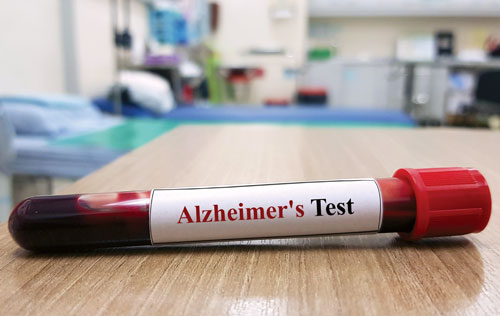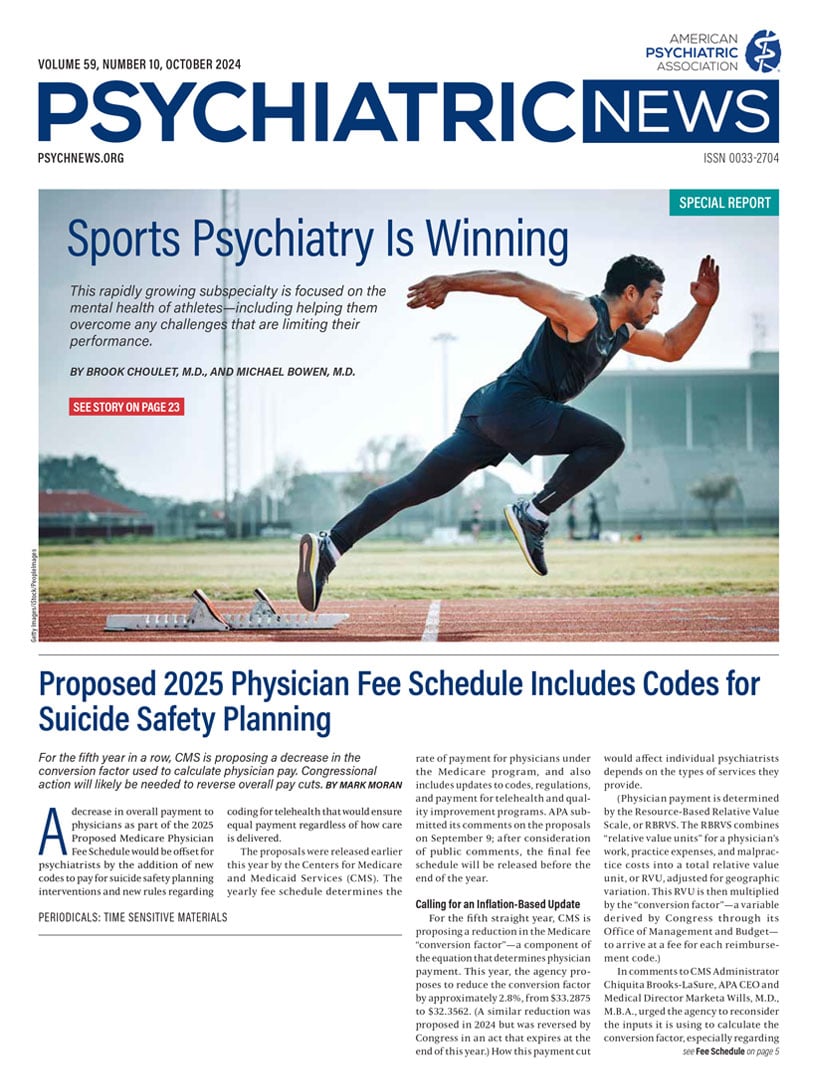A blood test can determine with more than 90% accuracy whether a patient’s cognitive impairment is caused by Alzheimer’s disease, a
study in
JAMA has found. The test measures the ratio of phosphorylated tau 217 (p-tau217) to non-p-tau 217 and the ratio of amyloid-β 42 to amyloid-β 40. P-tau217 and amyloid-β 42 are protein fragments that have been implicated in Alzheimer’s disease.
The test, PrecivityAD2, has been available in the United States for health care professionals to order from a CLIA-certified laboratory since early 2023. However, it is currently not approved by the Food and Drug Administration (FDA).
Oskar Hansson, M.D., Ph.D., a professor, principal investigator, and research team manager in the Clinical Memory Research Unit at Sweden’s Lund University, and colleagues analyzed data from 1,213 patients with cognitive symptoms who were examined between February 2020 and January 2024. Of these, 515 were examined by primary care physicians and 698 were examined by dementia specialists in a memory clinic setting.
All patients received the blood test, and the results were confirmed with cerebrospinal fluid tests or PET scans, both of which can reveal Alzheimer’s disease pathology. The patients were also evaluated by physicians who had not seen the results of the blood tests and had based their diagnoses of Alzheimer’s disease on clinical examination, cognitive testing, and a CT scan.
Among all patients, 23% had subjective cognitive decline, 44% had mild cognitive impairment, 33% had dementia, and 50% had pathology indicative of Alzheimer’s disease. The blood test correctly identified Alzheimer’s disease with 91% accuracy, compared with 73% accuracy for dementia specialists and 61% accuracy for primary care physicians.
“That the test was just as accurate in primary care as it was in secondary care was unexpected, given that the primary care patients were older and had more comorbidities, including more than 25% with chronic kidney disease, which is known to affect the accuracy of blood test results,” lead researcher Sebastian Palmqvist, M.D., Ph.D., told Psychiatric News. Palmqvist is an associate professor and senior lecturer in the Clinical Memory Research Unit.
“Another surprise was how difficult it is to diagnose Alzheimer’s disease correctly without the use of biomarkers,” Palmqvist said.
Palmqvist said that the test could improve diagnostic accuracy for psychiatrists who work with memory evaluations but do not have access to cerebrospinal fluid or PET scans. “For those working in psychiatry, especially in geriatric psychiatry, it could help rule out underlying Alzheimer’s disease as the cause of cognitive symptoms in patients with atypical psychiatric presentations,” Palmqvist said.
Palmqvist stressed that the test should only be used for patients with cognitive symptoms consistent with Alzheimer’s disease. “This test should not be used as a screening tool, as it typically becomes positive before cognitive symptoms appear, and many elderly individuals may never develop severe symptoms before dying of other causes,” he said.
Rajesh R. Tampi, M.D., M.S., a member of APA’s Council on Geriatric Psychiatry and professor and chair of psychiatry at Creighton University School of Medicine, agreed that the test should only be used when a patient has symptoms. “[Patients] can become depressed or anxious because of the diagnosis, and that becomes a big quality-of-life concern,” he said. “We have to think of the humans behind the test. The goal is to provide the best care, but if it will make their lives miserable when they don’t even have symptoms, it’s not worth it.”
Tampi said that although the study is a great start, more research is necessary—and the blood test should be evaluated by the FDA. “It’s a fantastic study published in a high-impact journal, but it is one study done in Sweden, which has a fairly homogenous population,” he said.
“Race matters in dementia, and we need studies to be done in a racially heterogeneous population, especially in the U.S.,” Tampi added. “We need the critical review from the FDA that shows us the test will be effective in many different populations.”
Tampi said that public discussion and a national consensus are critical to establishing guidelines and best practices for using the test. “The medications we have work for slowing mild cognitive impairment and dementia in Alzheimer’s disease, but we don’t have any medications for preclinical or asymptomatic disease,” he said. “We want to diagnose early, but the bigger point is to make a diagnosis when we can actually do something about it.”
This study was funded in part by the National Institute on Aging, the Alzheimer’s Association, the GHR Foundation, and the Swedish Research Council, among other entities, and by C2N Diagnostics LLC, makers of PrecivityAD2. ■



